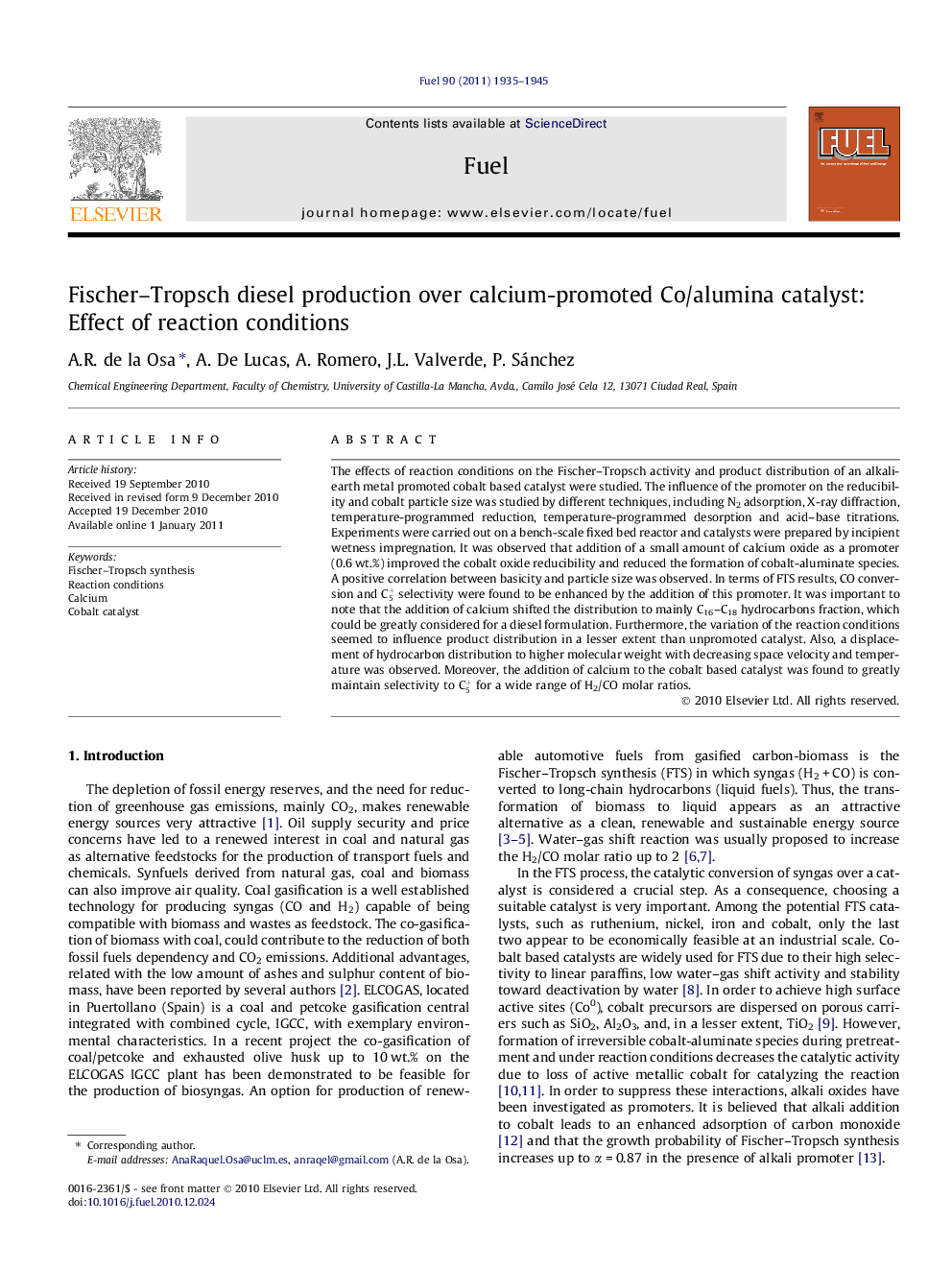| Article ID | Journal | Published Year | Pages | File Type |
|---|---|---|---|---|
| 206767 | Fuel | 2011 | 11 Pages |
The effects of reaction conditions on the Fischer–Tropsch activity and product distribution of an alkali-earth metal promoted cobalt based catalyst were studied. The influence of the promoter on the reducibility and cobalt particle size was studied by different techniques, including N2 adsorption, X-ray diffraction, temperature-programmed reduction, temperature-programmed desorption and acid–base titrations. Experiments were carried out on a bench-scale fixed bed reactor and catalysts were prepared by incipient wetness impregnation. It was observed that addition of a small amount of calcium oxide as a promoter (0.6 wt.%) improved the cobalt oxide reducibility and reduced the formation of cobalt-aluminate species. A positive correlation between basicity and particle size was observed. In terms of FTS results, CO conversion and C5+ selectivity were found to be enhanced by the addition of this promoter. It was important to note that the addition of calcium shifted the distribution to mainly C16–C18 hydrocarbons fraction, which could be greatly considered for a diesel formulation. Furthermore, the variation of the reaction conditions seemed to influence product distribution in a lesser extent than unpromoted catalyst. Also, a displacement of hydrocarbon distribution to higher molecular weight with decreasing space velocity and temperature was observed. Moreover, the addition of calcium to the cobalt based catalyst was found to greatly maintain selectivity to C5+ for a wide range of H2/CO molar ratios.
